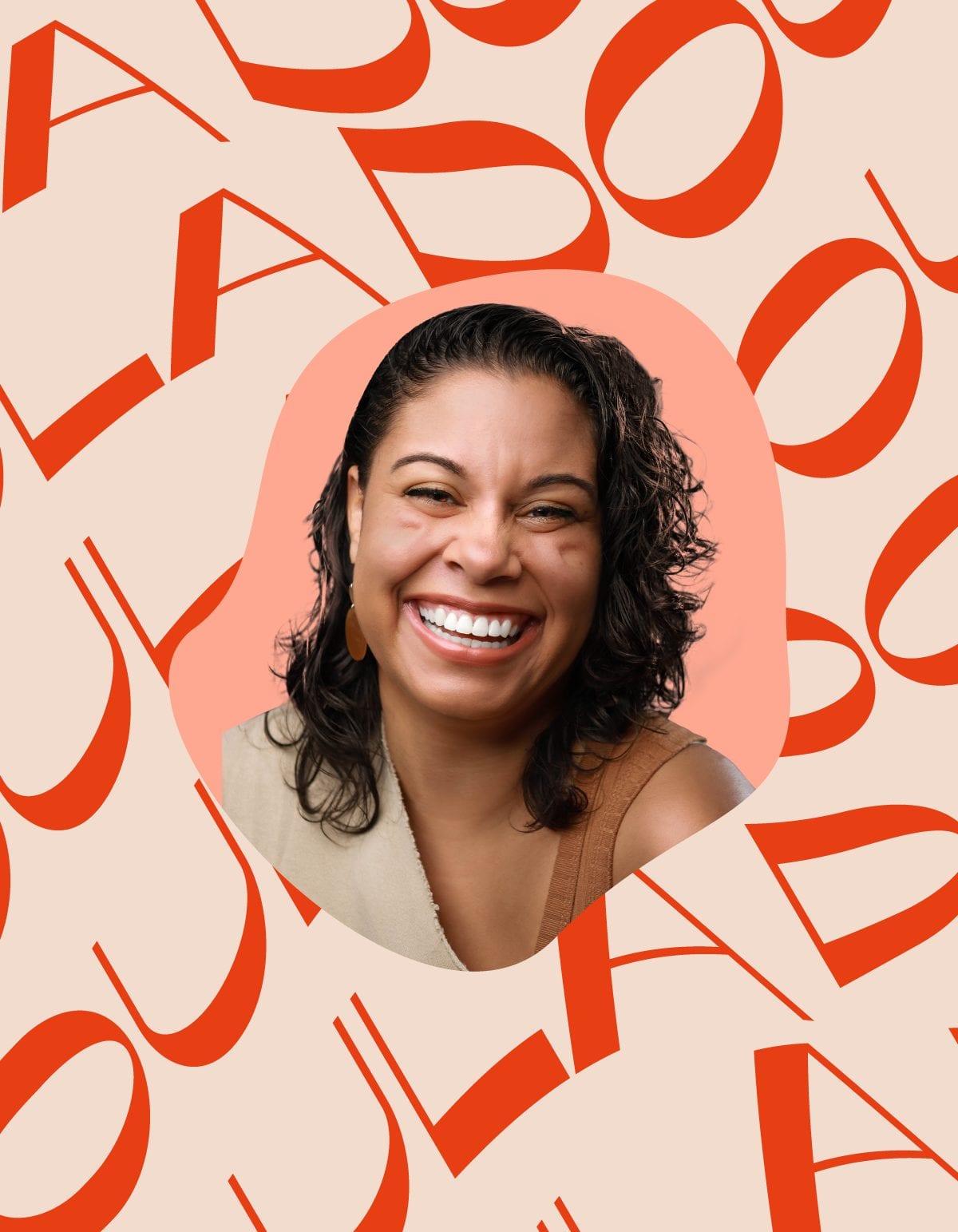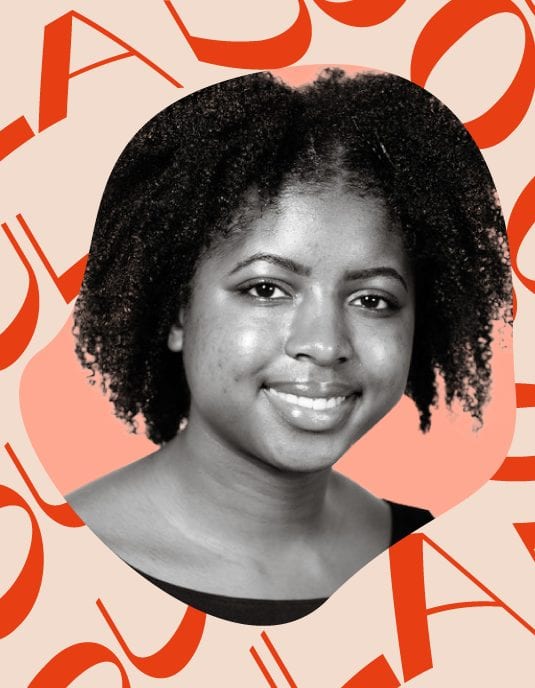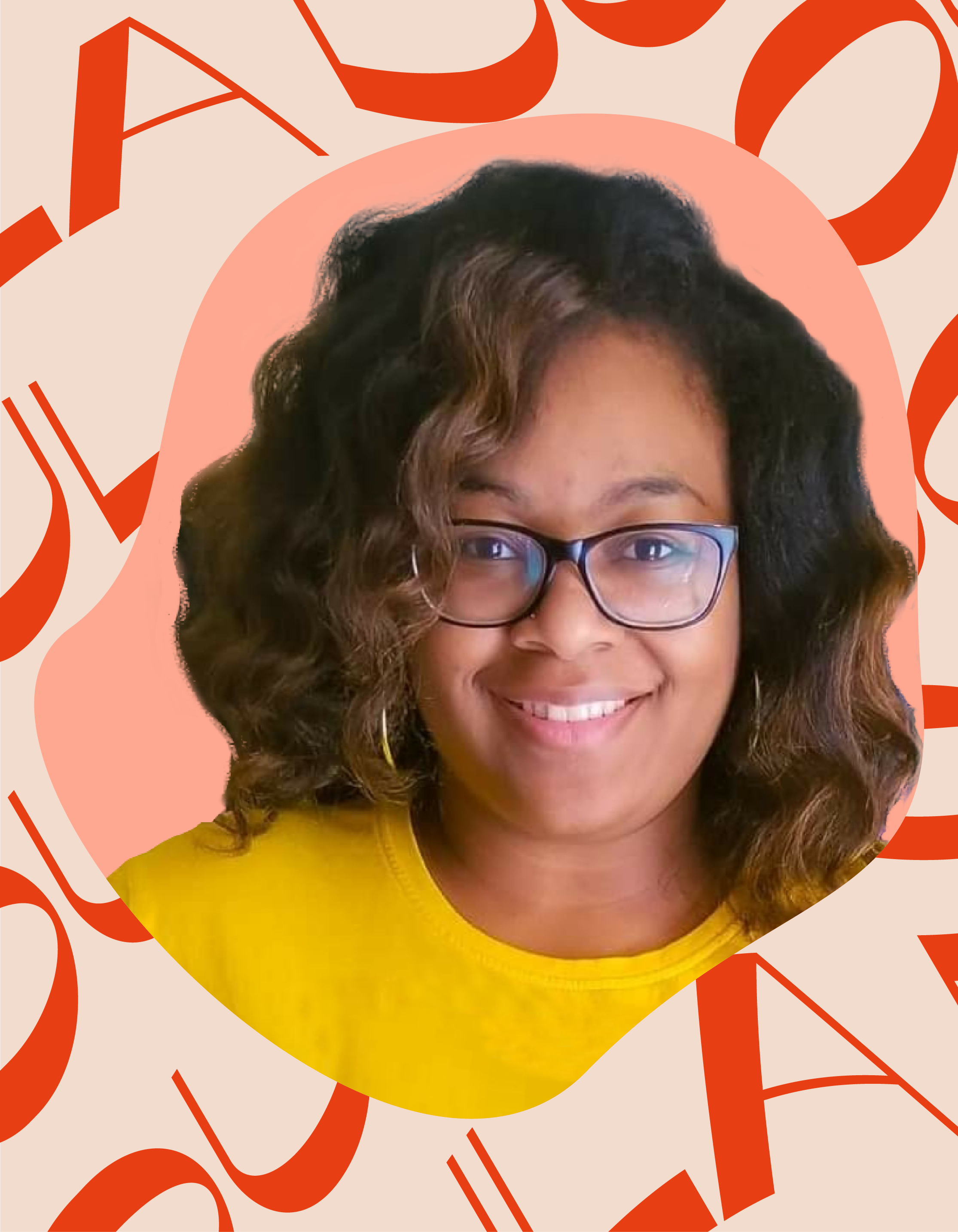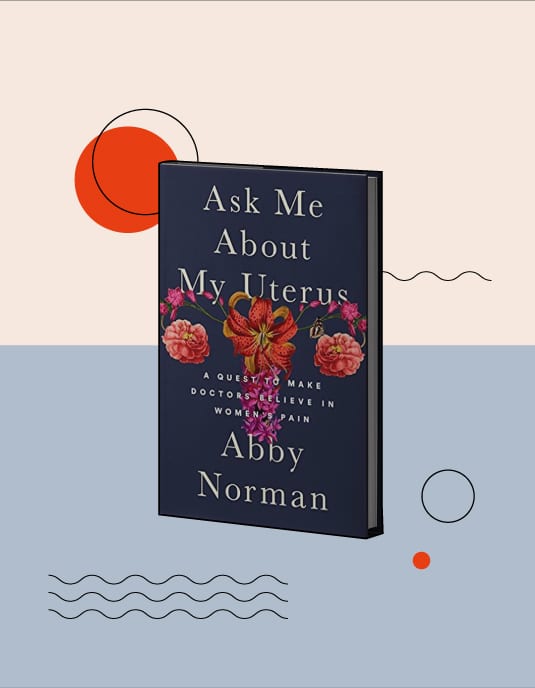Demystifying doula work: Interview with Emilie Rodriguez
TL;DR: On this World Doula Day, we interview Emilie Rodriguez, traditional birth worker and founder of Ashé Birth Services and newly launched The Bridge Directory, about her journey to birth work, her perspective on advocating for equity among BIPOC birthing communities, and the importance of mentorship, community, and eldership in the call to arms for reproductive justice.
World Doula Day is March 22nd, chosen to symbolize the return of fertility in many cultures across the world on the day of the spring equinox. This World Doula Day, we are taking a moment to thank the wonderful doulas and birth workers across the globe who deliver compassionate, equitable care.
As we firmly believe here at Flex®, community supporting community is a powerful and crucial force for positive change. In these times of widespread uncertainty, there is nothing more important than lifting the voices of the individuals and organizations working at a grassroots level to improve access to equitable healthcare—reproductive healthcare, in particular.
Whether it’s offering menstrual products free of charge to underserved communities, destigmatizing period talk, spreading awareness of the diagnostic inequities in conditions like endometriosis or uterine fibroids, or advocating for the legitimization of female pain, we’re here for it. And we hope to get each and every one of our #Uterati community members on board.
Ashé Birthing Services is one of those organizations working relentlessly to create change, and we’re so excited to be able to share founder and doula Emilie Rodriguez’s story with the Flex community. Ashé is dedicated to creating, in their words, “a balance between evidence-based research and ancestral practices” in caring for birthing people in the Greater New York City area.
During the early days of the pandemic, Ashé found that many folks in their community were having to choose between doula support and basic life expenses like paying rent or keeping food on the table—a decision that no birthing person should ever have to make. Emilie and her co-leads sprung into action, creating a GoFundMe to support those who may not otherwise be able to access doula services in preparing for and giving birth.
Community is one of the many themes that arises in this interview with Emilie, traditional birth worker, co-founder of Ashé Birthing Services, and now founder of newly launched The Bridge Directory.
Read on to learn more about Emilie and her journey, from finding herself and her true purpose in her 30s, to her thoughts on health disparities in her home city of New York, to her current initiative serving the BIPOC community through an inclusive coalition of birth workers of color.
For our readers, can you tell us a little bit about yourself and how you came to be a doula?
My name is Emilie Rodriguez. I am a traditional birth and postpartum doula, founder of Ashé Birthing Services, and now also founder of The Bridge Directory. My background is in medical anthropology and veterinary medicine, and I thought at first that I was going to continue down that path.
But then when I became pregnant, I realized I still didn’t know so much information. I took a childbirth education class in New York City, and, the whole time, the founder, Tanya Wills, who is now a mentor of mine, was like, “You’re a doula. You’re a doula.” Eventually, I decided to have a home birth, and I had a doula, and it was a really empowering birth experience. I became a doula from that moment onward.
It sounds like it was your own process of experiencing birth with a doula that inspired you to go down this path.
To be honest, I felt like I needed to mature. A lot of a lot of doulas aren’t mothers, but I needed to be a mother to know what the ceremony of birth felt like first, to be able to then guide other birthing people through the process. Because we have to learn how to sit in fire.
I needed to learn how to sit in fire and in ceremony before I could guide someone else through that process. I really feel that the universe has led me to be a doula in my 30s—because I was ready to be a doula in my 30s.
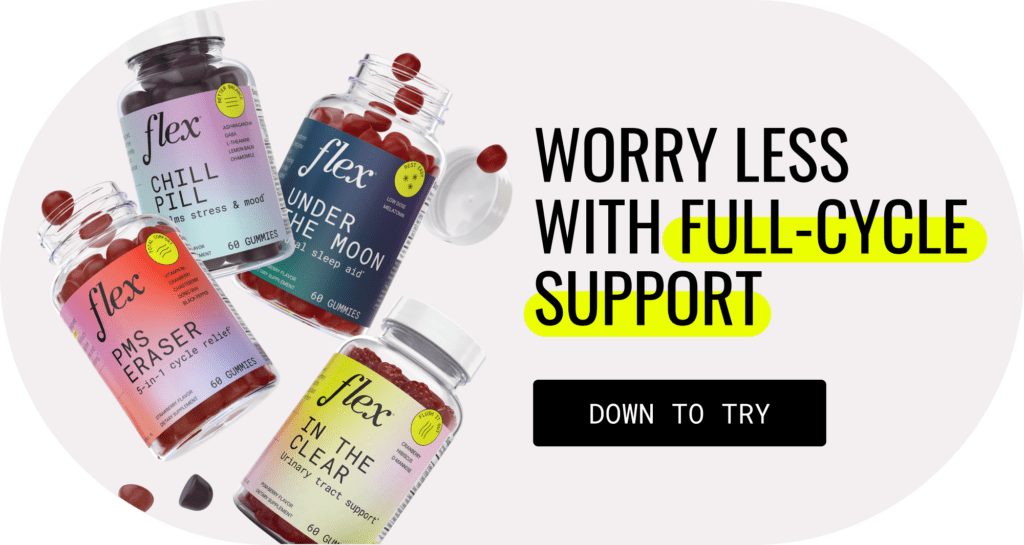
I’d like to discuss a little bit about home birth, because I think often people think about movies and pop culture, and they associate it with candles and water baths and all the things.
As a doula, what has been your experience with home birth, and guiding birthing people through the decision-making process around that?
That’s layered. First, I’d like to say that I would love to see when a person becomes pregnant, for the provider that they go to to confirm pregnancy to ask, “Where would you like to give birth? A hospital, a birthing center, or home birth?” Most people don’t even know that home birth is an option until later, if at all.
I would also say that home birth is not like the movies, and it’s also not for everyone. I think that you have to really trust your body, that you have to trust the birthing process. And you have to feel safe, wherever you give birth.
While I am a doula and not a midwifeA nurse midwife is a registered nurse who goes on to receive a master’s degree in nursing and specializes in midwifery. Midwives work with pregnant people before, during, and after childbirth, and may assist with or perform the delivery of a baby either at a birthing person's home, a birthing center, or at a hospital., I think there are parallels in the ways in which the two professions have historically been devalued by Western medicine.
Using my anthropological lens, when we look historically, midwives have often been shamed and erased out of medicine. In the United States, we spend the most on healthcare, but we have among the worst outcomes when it comes to infant and maternal mortality.
So, finally, we’ve started to realize that there’s a lot we can learn from midwives, and low-risk people are realizing that they may not necessarily need to be in the hospital to give birth and are instead seeking the care of midwives—as well as support from birth doulas.
So now, it’s starting to become normalized again, whereas in the ‘50s and ‘60s there was this sense of “Oh, no, we’re civilized, we give birth in the hospital.” Now, there’s this wave coming back where people want to be in touch with their bodies and have unmedicated births in either birthing centers or at home.
And for our readers, what is a birthing center?
A birthing center is like a middle ground between a hospital and home birth. In New York, it’s still obstetrician-led, meaning there are obstetricians on premises that make all the overhead decisions, and then you’re attended by midwives.
That’s really already what makes it very special. So, you know, you’re only transferring to a hospital if you need to. Whenever there’s an emergency, we usually have lots of time. In my six years of doing this work, we are usually walking to the hospital more often than driving ourselves to the hospital.
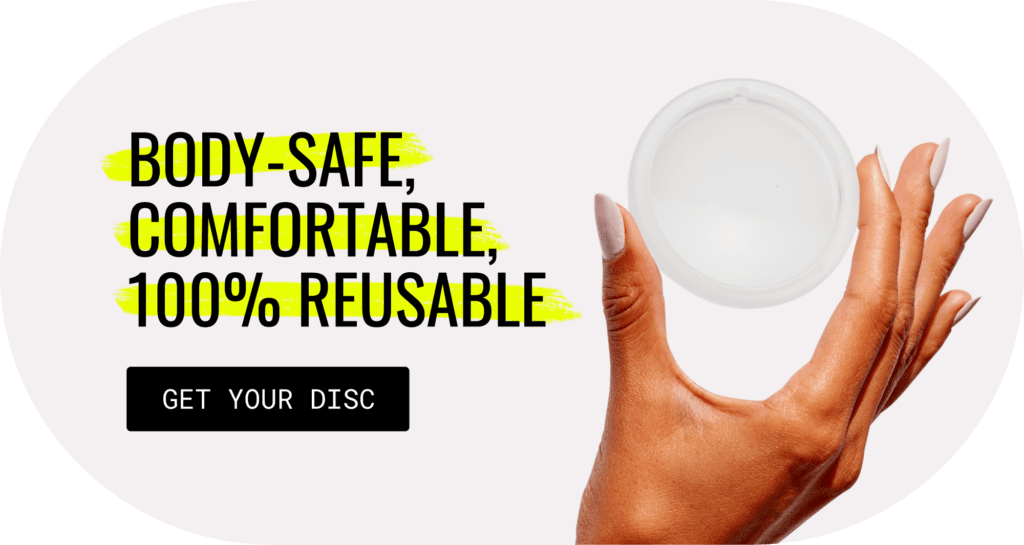
Especially in the last couple of years, we have seen the rise of doulas in the public consciousness. I’m curious about your thoughts on that.
Many of these things—whether it’s baby wearing, breastfeeding, co-sleeping, or becoming a doula—have recently been stolen and rebranded. It’s now viewed as capitalistic and “in vogue” and all of that.
But doula is an ancient Greek word; the role has existed for thousands of years. It was our neighbors, it was our tias, it was our sisters. My great-grandmother was a traditional midwifeA nurse midwife is a registered nurse who goes on to receive a master’s degree in nursing and specializes in midwifery. Midwives work with pregnant people before, during, and after childbirth, and may assist with or perform the delivery of a baby either at a birthing person's home, a birthing center, or at a hospital. in the South. We have this knowledge. This is why I call myself a traditional birth worker.
Like you mentioned, you have a background in medical anthropology and you’ve conducted ethnographic research on birthing communities. How has this shaped your approach to delivering care?
As a corollary to this, medical anthropology has a very complicated history—especially in communities of color.
I’m curious how you acknowledge these past harms of the school of thought, while also taking the learnings into your current work?
As a mixed-race, Black woman, I consider it my responsibility to take the knowledge that I have access to, whether it be if I’m talking about maternal mortality, or the history of medical anthropology, and so I take what I need, and I bring it back to my people.
I also feel like both careers actually shaped me very much. I was a veterinary technician, so I went to nursing school. I use that to navigate the hospital system for my clients. I know the lingo, I know the medicine, I know the anatomy.
And while I don’t wear a medical hat as a doula, I’m able to give them the information to present them with all of their options, and really break it down what that means for them, so that they can make an informed choice that feels right for them and their family.
In medicine, we often talk about patient-centered care, especially in reproductive health. But it sounds like for you, it goes beyond that, right?
White coat syndrome is definitely a thing. Racism in medicine is a thing. I had an obstetrician recently say to me that she learned about consent through our Instagram page. That blew my mind.
A lot of times, I don’t even blame the provider. I blame the way they were taught, because I see doctors go into a laboring room and and say, “I am going to break your water now”—but you could say, “So, it has been 6 hours with no dilation change and we want to break your water to get you into active labor. These are all the options you have. These are the benefits and the risks to AROM. Why don’t you talk about all that with your partner (and your doula) and I’ll come back in five minutes to discuss.”
That’s informed consent.
It is so important to keep stating these numbers as stark as they are: Black women and indigenous women are 2 to 3 times as likely to die from a pregnancy-related cause than white women.
This is essential to bring up when we’re discussing patient-centered care and how this impacts diverse populations.
I totally agree. That’s why it’s so important for people like Beyoncé and Serena to speak out about their experiences [giving birth] and not being believed. Even for Serena Williams, with all the money and all the fame and all the best doctors, she still wasn’t believed.
There are people who want to excuse those numbers away to be something else. I’m so glad that we’re naming it what it is: it’s not race, it’s racism. In [my home city] New York City, it’s 12 times.1 And that is negligence, right? New York City has the best doctors in the whole world, so we should have the best outcomes. And, we don’t.
We’re making bills, and we’re doing legislation, and there’s a lot of people who are fighting on the frontlines. That’s why I am pretty vocal about this. We are going to keep screaming from the rooftops demanding better care until someone listens.
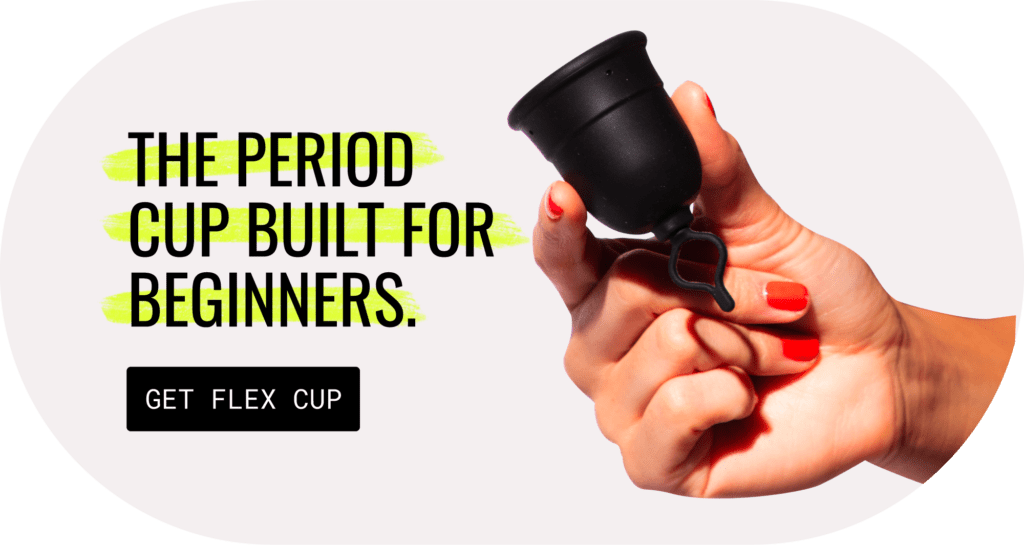
Speaking about efforts to combat this…let’s discuss The Bridge Directory.
The Bridge Directory is a directory for all birth workers of color, all birth professionals of color, which doesn’t currently exist. It was born out of a need for a resource.
A lot of times, people would call me and say, “I’m looking for a doula of color. I’m looking for a Black doula. I’m looking for somebody to represent me to make sure that I don’t die, to make me feel safe.”
The Bridge Directory includes obstetricians, midwives, lactation consultants, acupuncturists, chiropractors, doulas. It also sorts for language, and location, so you could for example say, I need a Spanish-speaking obstetrician who services the Bronx, and be matched that way.
In just our network alone, we are really tapped into our community. I’m excited for what it’s going to bring for families. I’m excited for the community that it will bring for doulas.
There can be so much separation and lack of community, and we’re hoping to address that by having community-nominated eldership, so there is accountability and someone to go to for wisdom. This is a way of trying to remember all this medicine that has been taken from us.
It sounds like you’ve been fortunate in that you’ve had many mentors throughout your life. Tell us about that.
My grandmother is the closest person to me in the world. I have a really supportive husband. And then, I’m a part of an African rites of passage program called Ndugu and Nzinga which is a diasporic African community. They have really helped shape my character so that I can do this work in a more sustainable way.
It’s been very intentional, walking with people who are like-minded, but who also hold you accountable. When I think about community, I think about people putting their hands on you to make you better. There’s an African proverb that says, the eyes see everything but themselves. I really rely on my community’s eyes so that I can be better.
It’s incredible that you’ve developed this community of women of color, too, that are all doing birth work.
I’m really thankful for the people who are in my community that can have these types of really hard conversations. That’s when you know that people are holding your heart, and that’s what makes you a better person, mother, wife, sister, doula. I rely on my community to help shape me. I’m excited to see how the communities form because I definitely want to knock down these walls, these barriers, and build bridges.
We just posted something on our social media platform. It was an Angela Davis quote, and it says that walls turned sideways are bridges.
We don’t need a seat at the table, we can make our own table! Everything that we do is revolutionary.
Note: This interview has been condensed and edited for clarity.
About Doula Emilie Rodriguez
Emilie is a traditional birth and postpartum doula and founder of Ashe Birthing Services based in the Bronx, New York. She studied Medical Anthropology at the City College of New York, focusing on birth in the United States.
After giving birth herself, she became a doula full-time in NYC and started noticing the chasm of resources available in her community, as well as a lack of connection amongst birth workers, especially within the BIPOC community, across professions.
Inspired, she began building The Bridge Directory – a resource for families and a directory for birth professionals of color. Currently located in NYC, Emilie lives with her partner and son.
Find Emilie online at www.ashebirthingservices.com and on Instagram @ashebirthingservices.
Don’t miss out on upcoming doula content and exclusive interviews: Subscribe to our email newsletter [below] for updates re: the Demystifying Doula Work blog series. Read our other posts in the series:
Know a doula who deserves a shoutout? Drop us a line at thefornix@flexfits.com.
This article is informational only and is not offered as medical advice, nor does it substitute for a consultation with your physician. If you have any gynecological/medical concerns or conditions, please consult your physician.
© 2021 The Flex Company. All Rights Reserved.
- NYC Health. Pregnancy Associated Mortality. New York City, 2006-2010. https://www1.nyc.gov/. https://www1.nyc.gov/assets/doh/downloads/pdf/ms/pregnancy-associated-mortality-report.pdf.[↩]
Photographer: Dukens Alexandre
